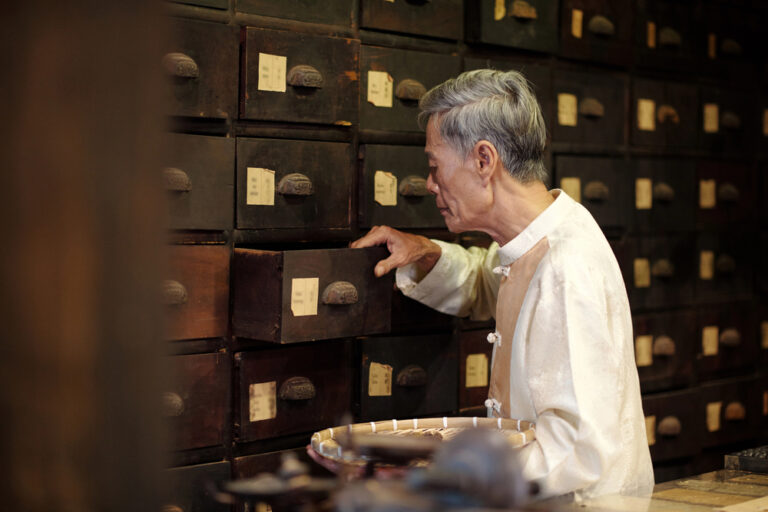Introduction
Chinese herbs have played a vital role in natural healing for thousands of years, forming the foundation of Traditional Chinese Medicine (TCM). These remedies, derived from plants, roots, flowers, and minerals, aim to restore balance within the body by addressing the root cause of ailments rather than just the symptoms. In today’s world, Chinese herbs are gaining renewed attention for their effectiveness in enhancing immunity, reducing stress, improving digestion, and promoting longevity.
This article explores 12 powerful Chinese herbs that continue to shape the wellness industry, blending ancient knowledge with modern science to support holistic health.
1. Ginseng – The Energy Booster
Known as the “King of Chinese Herbs,” ginseng is celebrated for its ability to revitalize energy, improve concentration, and enhance physical stamina. It supports adrenal function and helps the body adapt to stress — making it one of the most studied adaptogens in herbal medicine.
2. Astragalus – The Immunity Shield
Astragalus root strengthens the immune system, boosts resistance to infections, and increases energy levels. It is particularly effective in promoting long-term vitality and is a cornerstone in many herbal tonics designed to combat fatigue.
3. Goji Berry – The Longevity Fruit
Goji berries are nutrient-rich Chinese herbs containing antioxidants, amino acids, and essential vitamins. They support vision, boost liver health, and are known to enhance longevity and vitality when consumed regularly.
4. Reishi Mushroom – The Calming Adaptogen
Reishi mushroom, also called the “Mushroom of Immortality,” has been used for centuries to support the immune system and promote emotional balance. It’s one of the most popular Chinese herbs for reducing anxiety and supporting restful sleep.
5. Dang Gui (Angelica Sinensis) – The Female Tonic
Dang Gui is one of the most important Chinese herbs for women’s health. It nourishes the blood, regulates menstrual cycles, and relieves symptoms of menopause. Known as the “female ginseng,” it helps maintain hormonal balance naturally.
6. Schisandra Berry – The Five-Flavor Fruit
Schisandra is prized for its unique combination of sweet, sour, bitter, salty, and pungent flavors. It supports liver detoxification, improves mental clarity, and enhances endurance, making it a staple among Chinese herbs for stress management.
7. Licorice Root – The Harmonizer
Licorice root is used in countless herbal formulas because it harmonizes the effects of other Chinese herbs. It soothes sore throats, supports digestion, and reduces inflammation, acting as a gentle tonic for overall balance.
8. Cordyceps – The Performance Enhancer
Cordyceps are parasitic fungi long valued for their ability to improve oxygen uptake and endurance. Athletes and fitness enthusiasts use this powerful member of the Chinese herbs family to boost stamina and recovery.
9. Rhodiola Rosea – The Stress Resistor
Although native to colder regions, Rhodiola has been integrated into modern TCM practices due to its adaptogenic power. It helps the body resist stress, enhances mood, and supports cognitive function when combined with traditional Chinese herbs.
10. Chrysanthemum – The Cooling Herb
Chrysanthemum is one of the most refreshing Chinese herbs, used to clear heat from the body and improve vision. Commonly enjoyed as a tea, it’s excellent for relieving headaches, soothing sore eyes, and promoting relaxation.
11. Fo-Ti (He Shou Wu) – The Hair Restorer
Fo-Ti is legendary among Chinese herbs for promoting hair growth and preserving youth. It’s believed to restore vitality, prevent premature graying, and rejuvenate the body by nourishing the liver and kidneys.
12. Ginger – The Warming Healer
Ginger is one of the most versatile Chinese herbs, valued for its warming nature and digestive support. It aids in circulation, reduces nausea, and enhances the absorption of other herbal ingredients.
The Philosophy Behind Chinese Herbs
The philosophy of Chinese herbs is rooted in the principle of balance — maintaining harmony between Yin and Yang, the body’s internal forces. Practitioners assess patterns of imbalance rather than isolated symptoms, customizing combinations of herbs to suit each individual’s constitution.
This personalized approach means that two people with similar symptoms might receive different herbal prescriptions. The power of Chinese herbs lies in this adaptability and synergy, rather than in any single ingredient.
How Modern Science Supports Chinese Herbs
Modern studies increasingly validate the traditional use of Chinese herbs. Research demonstrates their potential to:
-
Regulate immune responses and inflammation
-
Improve cardiovascular health
-
Enhance cognitive performance
-
Support hormonal balance
-
Promote cellular repair and longevity
For example, ginseng’s ginsenosides have been shown to boost energy metabolism, while reishi’s triterpenes and polysaccharides enhance immune modulation. Likewise, cordycepin from cordyceps supports ATP production, improving endurance and reducing fatigue.
Integrating Chinese Herbs into Daily Life
Incorporating Chinese herbs into your wellness routine doesn’t have to be complicated. Here are a few ways to start:
-
Herbal Teas – Enjoy infusions of chrysanthemum, goji berry, or ginseng for daily energy and relaxation.
-
Tinctures or Capsules – Concentrated extracts offer consistent dosage and convenience.
-
Herbal Soups and Broths – Traditional Chinese households often simmer herbs with meat or vegetables for nourishing meals.
-
Powdered Supplements – Add powdered reishi or cordyceps to smoothies or coffee for a functional boost.
Always consult a qualified TCM practitioner before starting any regimen, especially if you are on medications or have chronic health conditions.
The Global Revival of Chinese Herbs
With the rise of integrative and functional medicine, Chinese herbs are gaining mainstream acceptance worldwide. Wellness enthusiasts, athletes, and even medical researchers are exploring their potential in preventive health, anti-aging, and natural performance enhancement.
This global revival represents a bridge between ancient wisdom and modern innovation — where herbal tradition meets scientific validation. As awareness grows, Chinese herbs continue to shape the future of holistic wellness, offering natural pathways to balance and vitality.
Conclusion
Chinese herbs are not just relics of the past — they are powerful, living traditions that continue to enhance well-being across generations. With roots in ancient philosophy and branches in modern science, they embody the perfect harmony of nature and medicine.
From energy and immunity to beauty and longevity, these 12 remarkable herbs reveal how ancient remedies can transform modern health. By understanding and respecting their holistic principles, anyone can harness the healing power of Chinese herbal medicine to achieve a balanced, vibrant life.
References
- National Center for Complementary and Integrative Health (NCCIH) – Herbs at a Glance
- PubMed – Traditional Chinese Herbal Medicine Research
- World Health Organization – Traditional Medicine Strategy




